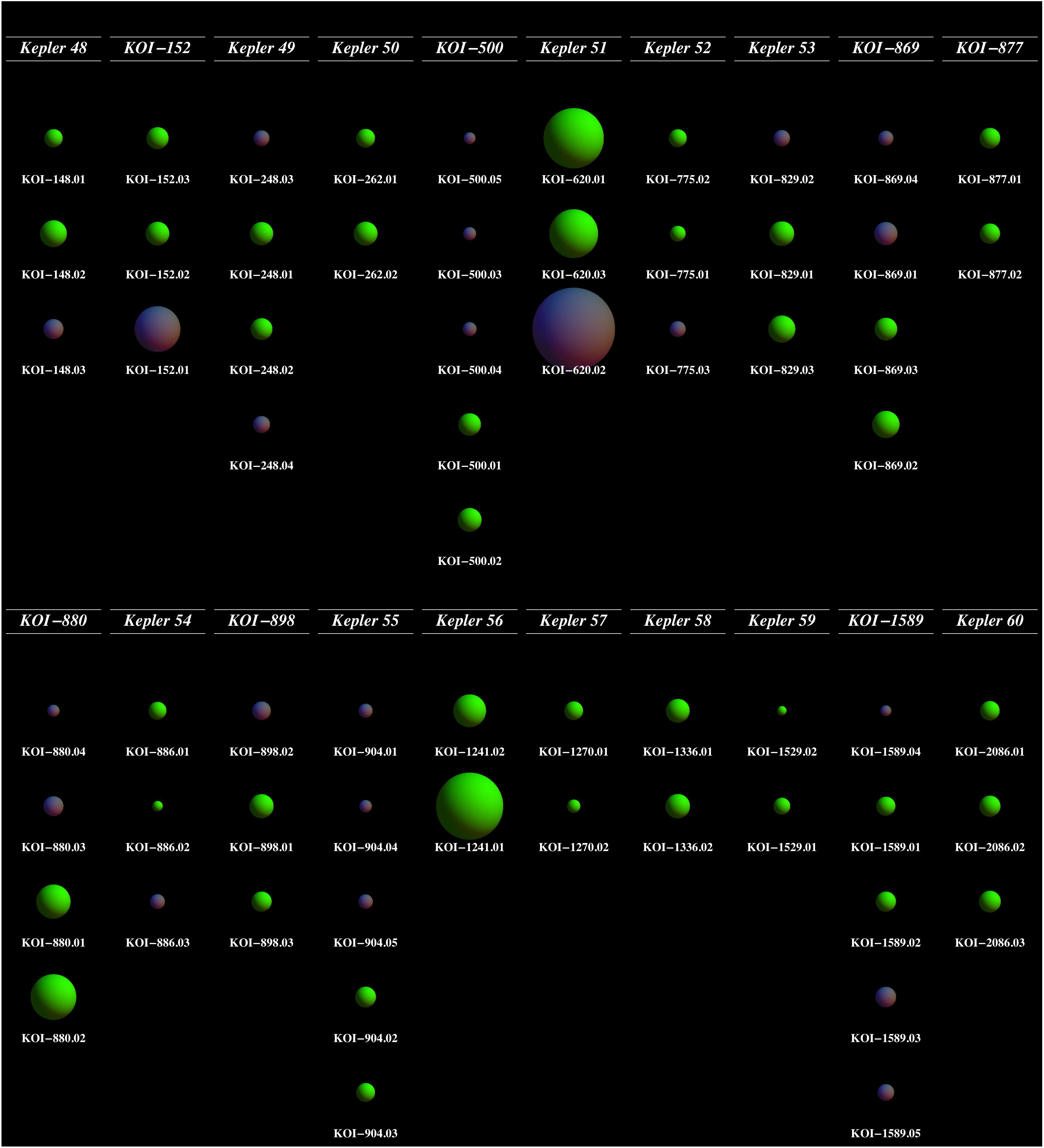

41 Planets in 20 Multiplanet Systems
Two papers confirm a large number of transiting exoplanets in multiplanet systems using Transit Timing Variations. One paper, by Jiwei Xie at the University of Toronto, confirms 24 planets in 12 systems. An independent paper by me confirms 27 planets in 13 systems. Five of the systems are the same in both papers. The picture below shows the newly confirmed planets (in green) along with unconfirmed planet candidates in the same systems (grey). These new systems boost Kepler's confirmed planet haul to over 100 in more than 60 planetary systems. The systems are ordered horizontally by increasing KOI designation from the Kepler planet candidate list and vertically by orbital period.

I'm currently an assistant professor in the physics department at the University of Nevada, Las Vegas. My research includes exoplanets, experimental searches for axion-like particles, dark energy, gravitation, and some other odds and ends. I obtained my B.S. in physics and mathematics from Weber State University (Ogden, UT) and my Ph.D. in physics from the University of Washington (Seattle).
Here are is a pdf of my CV.
For an ADS list of my publications, click here.
This is a link to the slides for a public talk I gave on exoplanets.
Some research links:
Chameleon Searches
Axion-like Particles
Extrasolar Planets
ISLV gravity experiment
Airplane passenger boarding
Links to media coverage
Some Personal Stuff
Some Lecture Stuff for Physics 115
Some More Lecture Stuff for Physics 115
voice part
video part
slides
other slides


